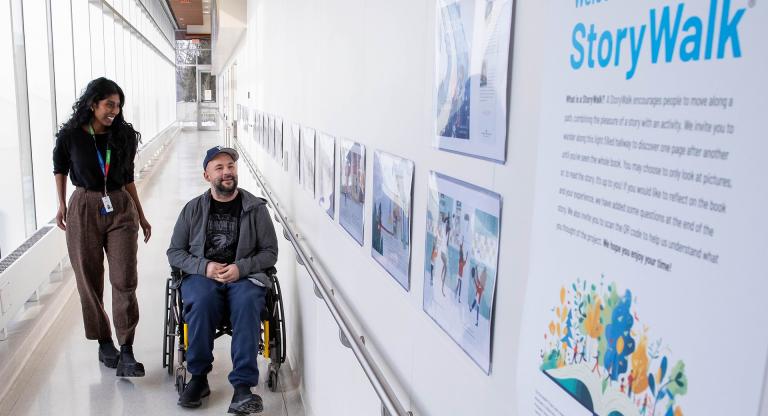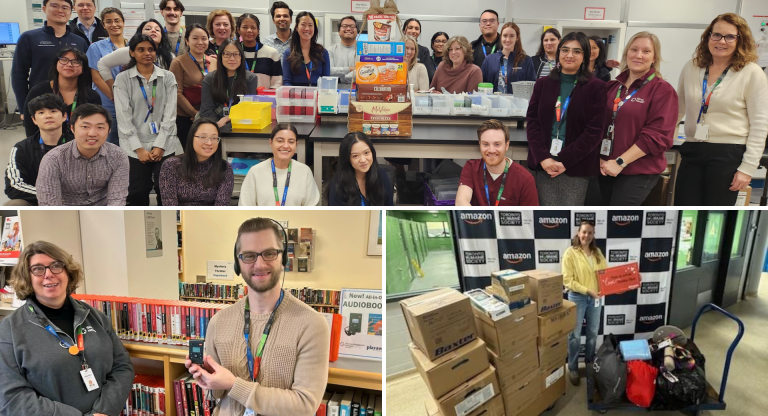Sinai Health appoints inaugural cohort of Translational Research Scientists to accelerate health innovation
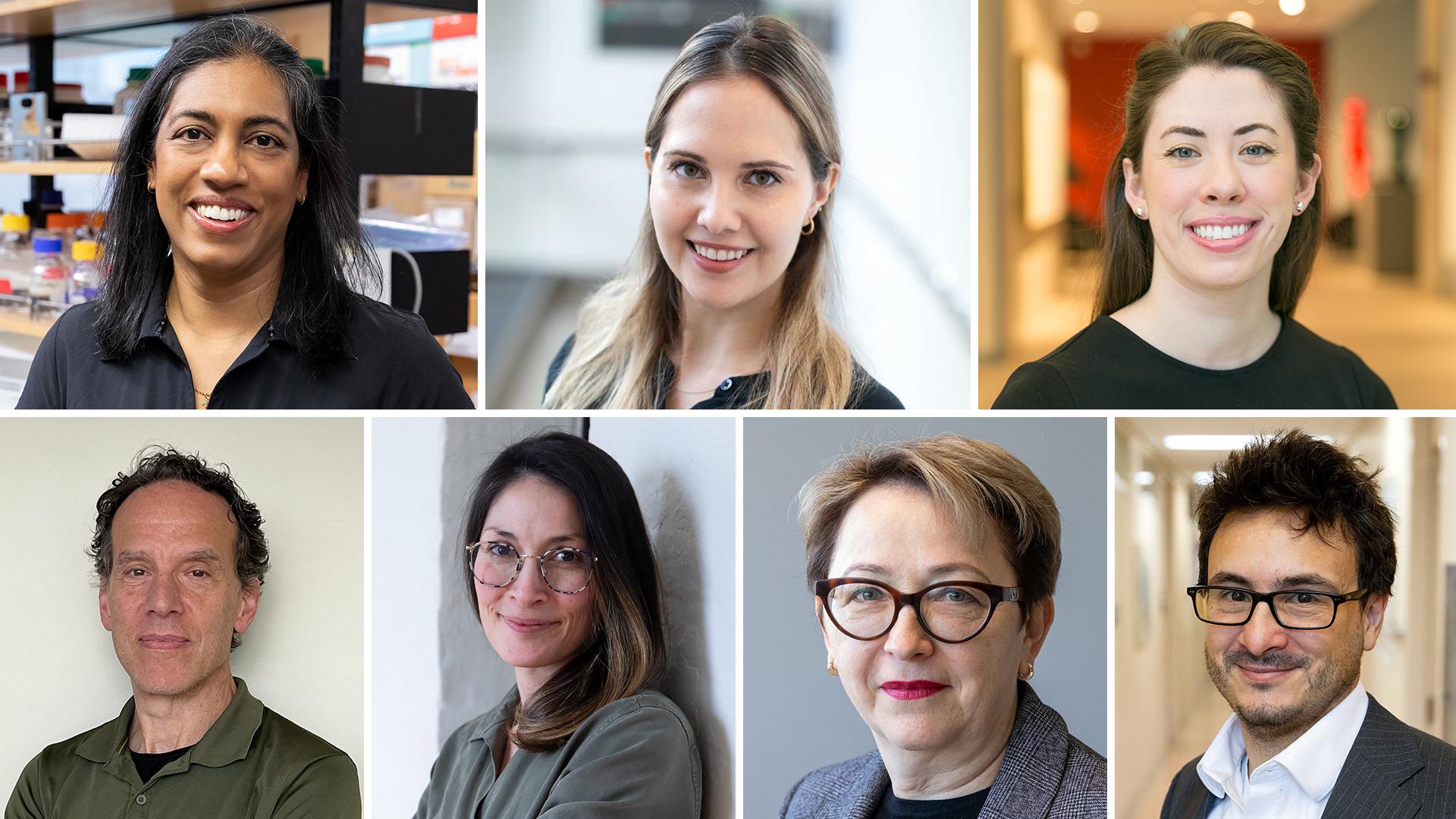
Sinai Health and the Lunenfeld-Tanenbaum Research Institute (LTRI) are pleased to announce the inaugural cohort of Translational Research Scientists. Created to bridge the gap between discovery research and real-world impact, these new roles will drive innovation in health, patient care, health policy and health-care delivery.
Embedded within clinical departments or research institutes at Sinai Health, with academic appointments at the University of Toronto (U of T), Translational Research Scientists will collaborate with clinician-scientists, health-services researchers, discovery scientists, core facilities and external partners to ensure that research leads to measurable improvements in health.
With expertise spanning stem cell biology, engineering, microbiome, clinical trials, health systems and implementation science, these scientists will harness Sinai Health’s state-of-the-art technologies and unique clinical environment to tackle key challenges across the health-care continuum – from biomarker and therapeutic discovery to evidence-based policy and scalable interventions.
“The role of Translational Research Scientists was strategically established to help us address the complex health challenges of our time,” said Dr. Anne-Claude Gingras, LTRI Director and Vice President, Research, Sinai Health. “Through interdisciplinary collaboration and mentorship, they will play a pivotal role in advancing Sinai Health’s mission to integrate discovery science with clinical practice and health system priorities, ensuring that innovation translates into sustainable, real-world change for diverse populations.”
“This role is a true partnership with our clinical departments and research institutes,” said Dr. Susanna Mak, Deputy Director, Clinical Research, who co-developed the new program. “We congratulate these seven talented scientists. Their appointment will contribute to our research strategic plan’s overarching goals of synergy, impact, cohesion and competitive positioning.”
Meet the inaugural cohort of Translational Research Scientists:
Dr. Adele Changoor: engineering solutions for joint repair
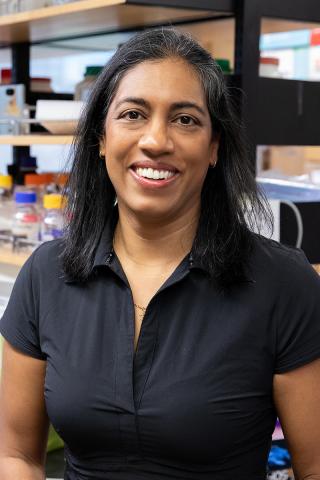
Dr. Changoor, an assistant professor of surgery at U of T, is committed to improving musculoskeletal health which includes the health of muscles, bones, joints, tendons and ligaments that provide support and allow movement, through innovations in orthopedics and arthritis care. Her aim is to develop better tools and therapies to address joint disease, so people can move and live with less pain.
She integrates engineering principles with clinical applications to develop new tools and techniques that can be used by surgeons and clinicians to improve outcomes for patients with joint and cartilage conditions. Key areas of her program include developing electroarthrography, a non-invasive method for assessing cartilage quality to better diagnose arthritis, advancing surgical repair techniques, such as transplantation of fresh cartilage, and studying pelvic biomechanics to support decision-making in complex hip replacement, where specialized surgical techniques are needed to help patients with poor bone quality or other complications.
Dr. Kristina Kokorelias: supporting older adults and caregivers across the care system
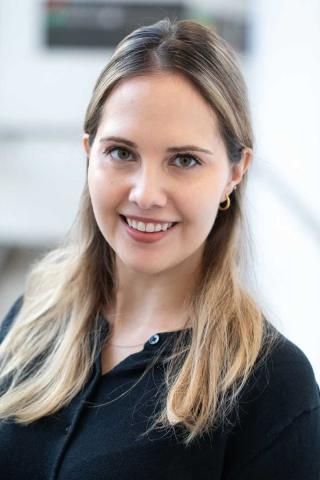
Dr. Kokorelias, assistant professor of occupational science and therapy at U of T, specializes in health services research and implementation science. Her research aims to create a more inclusive health system that supports aging with dignity, connection and purpose.
She explores how health care can be more inclusive, compassionate and responsive to the diverse experiences of aging populations. She studies how social, cultural and structural factors shape health-care experiences and outcomes and works closely with patients, families and health-care professionals to co-design solutions for real-world needs. Her research has helped shape better models of care in hospitals, long-term care homes and communities, especially for people living with dementia, HIV and other chronic conditions. She also investigates how technology, such as virtual care, can reduce isolation and improve well-being for older adults.
Dr. Kelsey McLaughlin: improving maternal heart health in pregnancy
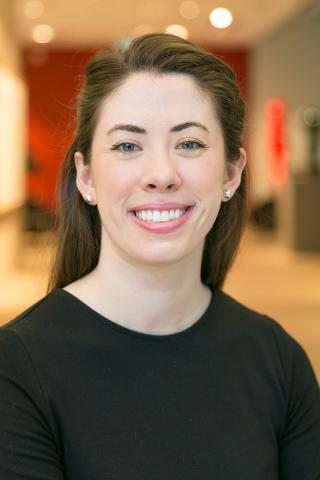
Dr. McLaughlin, an assistant professor of obstetrics and gynaecology at U of T, focuses on improving maternal cardiovascular health through prevention, diagnosis and management of high blood pressure in pregnancy.
Her research focuses on three key strategies: initiating a clinical trial to explore universal aspirin as a novel approach to prevent preeclampsia, a common and serious complication during pregnancy caused by a sudden spike in blood pressure; evaluating novel monitoring devices to assess the health of blood vessels in pregnancy; and collaborating with health-care providers nationwide to translate a new diagnostic blood test into clinical practice. Through these initiatives, Dr. McLaughlin seeks to improve not only pregnancy outcomes, but to also reduce the lifetime burden of cardiovascular disease in females.
Dr. Ian Rogers: engineering stem cell-based tissues for regenerative medicine
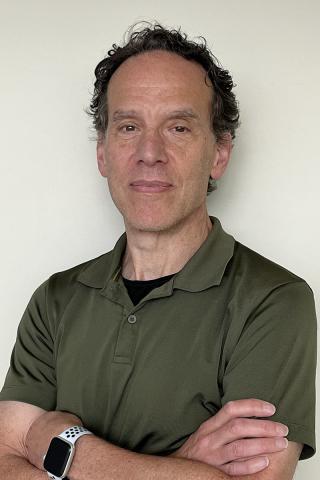
Dr. Rogers, a professor of obstetrics and gynaecology at U of T, is advancing complex tissue culture systems derived from stem cells, which can multiply and became specialized organ cells. He is working towards creating patient-matched organs for transplantation that could transform care for people with organ failure.
By integrating stem cells with engineered organ scaffolds, Dr. Rogers is creating miniature organs in a dish to deepen our understanding of how stem cells become specialized, communicate with one another and organize into complex, functional tissues and organs. A key discovery from his work is that the extracellular matrix, a meshwork of molecules that provide structural support to our organs, influences how stem cells and the cells derived from them develop. Guided by this knowledge, Dr. Rogers is using engineered miniature organs derived from patient stem cells to explore new treatments for kidney fibrosis and type 1 diabetes.
Dr. Marianne Saragosa: improving care for older adults and people living with dementia
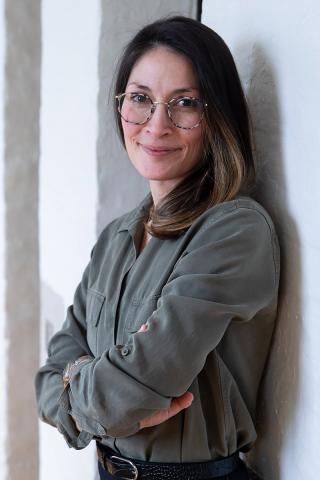
Dr. Saragosa is an embedded nurse scientist at Sinai Health’s Science of Care Institute and an assistant professor at the Institute of Health Policy, Management and Evaluation at U of T. As a trained nurse, she is dedicated to improving the experiences of more vulnerable, older adult populations, including people living with dementia and their caregivers, as they navigate complex health and social systems. She brings expertise in dementia care, care transitions, aging in place and qualitative research methods to address challenges across complex health and social systems.
At Sinai Health and in partnership with community organizations and health system leaders, Dr. Saragosa works to develop solutions to strengthen continuity and quality of care. She is especially recognized for using approaches such as patient journey mapping and co-design to engage patients, families and care providers in shaping meaningful change.
Dr. Oksana Shynlova: preventing preterm births and supporting pelvic health
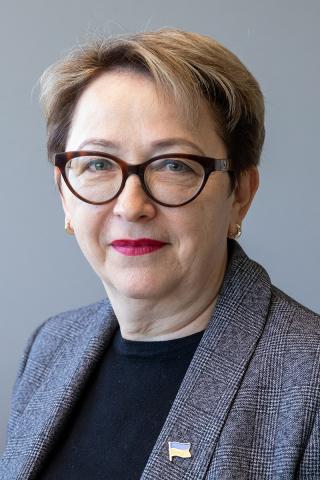
Dr. Shynlova, an associate professor of obstetrics and gynaecology at U of T, is dedicated to improving women’s health across the lifespan, with a focus on two major challenges: preventing preterm birth and treating pelvic floor disorders. These conditions affect millions of women, either during pregnancy or later in life after menopause.
She has advanced knowledge on uterine function during pregnancy and labour, the triggers and preventions of preterm births and tissue changes from age and hormone loss. She also investigates pelvic floor conditions such as pelvic organ prolapse and urinary incontinence, aiming to better understand their causes and how hormones may protect vaginal health. Another important area of her work looks at how estrogen therapy and regenerative medicine, including patient-specific stem cells, could be used to repair and strengthen pelvic tissues.
Dr. Williams Turpin: understanding and preventing Crohn's disease
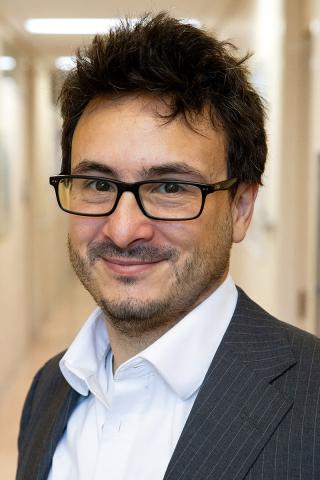
Dr. Turpin, an assistant professor of nutritional science at U of T, explores how the gut microbiome, the community of bacteria living in our digestive system, influences the risk of developing Crohn’s disease, a lifelong type of inflammatory bowel disease. With no known cure, prevention is a critical component of Dr. Turpin’s work.
Using advanced tools to measure gut bacteria, diet and biological signals, Dr. Turpin studies individuals who are at risk of Crohn’s disease. His goal is to uncover what foods and lifestyle factors support a healthy gut, and which may be triggering inflammation. By deepening knowledge around the relationship between diet, the microbiome and inflammation, Dr. Turpin aims to develop prevention strategies – from nutrition guidance to safe, bacteria-based therapies. His research is also helping to improve quality of life and reduce the burden of Crohn’s disease for patients, families and the health-care system.










